- Home
- Patricia McLinn
Proof of Innocence Page 2
Proof of Innocence Read online
Page 2
A new sound caught Laurel’s attention. It wasn’t the hum of a motor she’d been expecting, but it had damn well better be him. From habit, she adjusted her posture, dropping her arms to the best position under her breasts and cocking one hip to draw attention to the length of leg below her skirt.
The figure came from an unexpected direction and was hard to make out.
Hell, she didn’t care what direction he came from. Her wait was finished. Now, to get this over with.
CHAPTER TWO
Sunday, 9:14 p.m.
“You heard?” Sheriff Roger Gardner demanded.
No pleasantries, no easing into it. Just a city-bred cut to the chase.
Dallas Herbert Monroe rocked back as much as he could in his easy chair, wishing it were the chair behind his desk, which allowed more latitude, and studied the younger man from beneath lowered lids.
He’d adopted this pose early in his career. It masked when the pilot light on his mind fired up. No sense warning other folks when you were about to strike. Lost half the advantage of having a devious mind if folks knew you were fixing to be devious.
Not that he needed to do the lowered lids much these days. His mind still fired up with enough regularity to keep his skull from freezing — no, that hadn’t changed, thank God.
What had changed was the face that stared back at him from the mirror while he shaved each morning. Under eyebrows trailing the rest of his hair toward silver, skin pouched and folded until it resembled another eyelid.
Come to think of it, a second layer of defense might be handy now that he was supposed to be on the same team with the sheriff.
This new sheriff was sharp. This would take some handling.
“I heard,” Dallas said with a slow nod. “A tragedy. One so young, one so beautiful. Judge Blankenship will be devastated.”
Something crossed the other man’s face. “He is.”
“Ah.” Gardner had gone to Rambler Farm first. Courtesy or politics? Or could the sheriff suspect someone there?
“Had a devil of a time keeping him from heading right to the scene,” Gardner added. “Had a devil of a time keeping half the county from tramping all over the scene.”
Dallas nodded. “That’s why I stayed put. You got lights out there? I can go with you now.”
Dallas braced himself against the chair’s worn upholstery. Ruth would have had it re-covered years ago. But she’d been gone more than a decade and he hadn’t had the heart to change it.
The sheriff didn’t budge from the couch across from him. “Not sure this is going to work, Dallas.”
“I’m the duly elected Commonwealth’s Attorney for Bedhurst County. It’s my duty—”
“You’re also the defense attorney from a murder that took place at the same spot, with the victim another attractive young woman.”
Yes, Roger Gardner was sharp. And he’d done his homework. The murder of Pan Wade and J.D.’s trial predated Gardner’s election as sheriff by four years.
“He was acquitted.” Dallas’s voice was harsher than he would have liked.
“He’s in the county. And even more connected to you now.”
“I told you when you called, J.D. was here with me yesterday evening, well into the night. You can’t be saying he’s—”
“I’m not saying anything except that in a county with seven homicides in a decade, only two have not been domestics or bar fights — and both those were killings of attractive young women at the same hidden-away spot in the woods practically on your boy Carson’s doorstep.”
He couldn’t let Gardner shut him out of this investigation.
Too much rested on it.
He’d been sitting here thinking about that, trying to work it all out ever since word came about Laurel Blankenship Tagner.
“As the duly elected Commonwealth’s Attorney for Bedhurst County, I’m going out there with you. As will my associate.”
“Dammit, Monroe—”
Evelyn appeared at the arched opening. “Can I get you gentlemen anything? Coffee? Something else to drink?”
“No thank you, Mrs. DuPree,” Gardner said, a flicker crossing his face.
The same flicker that had crossed his African American features the first time he’d come into Monroe House and met the solid black woman who served as Dallas’ housekeeper.
She’d told the sheriff half a dozen times to call her Evelyn. He hadn’t listened. And yet, Dallas thought, the younger man probably believed he was being respectful.
Dallas also declined her offer of coffee with thanks.
When she left, he took up the conversational reins Gardner had dropped, as had surely been Evelyn’s intent by timing her arrival then. Dallas knew she was still listening from the hallway, and she’d have an opinion to share later.
“Sheriff Gardner, let’s be honest here. You need me. You don’t know this county. I do.” A modest understatement. No one knew this county the way Dallas Herbert Monroe did. And no one knew that better than Dallas Herbert Monroe. But modesty never went amiss.
“I know having you anywhere near the case until we know for sure if it’s connected or not to the one four and a half years ago is—”
“Who better to tell you if the two cases are connected than the defense attorney from the first trial?”
“Oh, I can think of a couple people just as good,” Gardner said with cutting dryness. “Starting with the murderer.”
Dallas settled deeper into his chair. So, now the real haggling began.
CHAPTER THREE
Monday, 8:12 a.m.
“Hope you had a nice weekend, Ms. Frye — you deserved it after that verdict Friday.”
Maggie smiled at the front desk guard as she went through the security screening. “Thanks, Robert.”
“Got to love when they come back fast and right,” he said.
“Absolutely.”
Most mornings Maggie Frye walked the four flights to her office in the glass and concrete Fairlington County Justice Center, counting it as both aerobics and weight-training, considering the heft of her briefcase, which never lightened no matter how some crowed about paperless offices.
But today she headed to the elevator.
She was treating herself.
The Millerand jury had returned a guilty verdict late Friday, putting away a rapist after an hour of deliberation.
That should prevent other women going through what Dustin Millerand’s two victims had. At least until he got out.
Winning the case gave her more ammunition to get Vic Upton to name her deputy when the current deputy retired in the fall.
Plus, the quick verdict had left an unburdened weekend to run errands, do laundry, buy groceries, and wake to the fact that winter had retreated from Fairlington County, Virginia.
Daffodils bloomed beside her townhouse’s front steps. She hadn’t planted them since moving in twenty months ago, but if they were a carryover from the previous owner, she should have noticed them last spring.
Oh, wait.
The Dorset case. The stalker tracked through his mother’s DMV records. No, she wouldn’t have noticed daffodils then.
The doors slid open on the fourth floor and she turned right.
“Maggie.” A familiar male voice came from behind her.
Her mood dipped. She kept walking.
“I could need to talk to you about a case, you know.”
She stopped, faced him. Dark blond hair, sparkling blue eyes, upper-crust looks — and even more appealing in his police uniform because of it. Must have ceremonial duties today. “Is this about a case?”
“No, but—”
She pivoted to continue in her original direction.
“You are so damned unforgiving.” He followed.
“According to you there was nothing to forgive.”
“There wasn’t. It didn’t mean anything.”
“Not to you, obviously. And now it doesn’t mean anything to me.”
“I meant with her, not wit
h you, Maggie.”
“I meant both.”
She tugged the outer office door handle. He spread his palm across the glass surface. Balanced between his push and her pull the door remained static.
“The prosecutor takes one piece of evidence, becomes judge, jury, and executioner?”
“Not original, Roy. And I doubt Officer Hundley would appreciate you calling her a piece — even of evidence.”
“I don’t want to play word games, Maggie.”
Because he never won? asked the voice in the back of her head previously silenced by his gorgeousness.
“I stayed away while you were trying that rape case,” he added. “Now it’s over and I want you to listen to my side.”
“No, you want me to agree you’ve done nothing wrong and we can go on the way we were. I told you before, we can’t.” She looked fully into his blue eyes. “I don’t want to.”
“You’re going to kick me out of your life? Give up on what we had? Forget how it was? And—”
“Yes. Yes. And yes. Good-bye, Roy.”
She tugged hard on the handle, wedged the door open with her briefcase and slipped inside.
“Good morning, Nancy. Isn’t it a beautiful spring day?”
Nancy’s gaze slid past Maggie, then back. “It’s been a beautiful spring day for two weeks. And you can stop talking like a dropout from finishing school. He’s gone.”
Maggie looked around. Nothing but hallway beyond the glass door.
“Roy Isaacson isn’t used to hearing no,” her assistant observed.
Nancy liked to say she’d held every job in the courthouse except judge and Commonwealth’s Attorney — in other words, all the important jobs. She knew everyone and their secrets.
“He’ll get used to it.”
“With him glowering like a thundercloud, word will get around. Belichek and Landis will be pissed if they don’t hear it from you.”
She hadn’t told her assistant she’d broken up with Roy. But Nancy knew everything about everyone in the building, plus half the metro area.
“I’ll call them.”
“Vic will be up later. Sheila couldn’t say when. The Post story must have him on the prowl.” Nancy frequently warned that, with Maggie’s success nipping at Vic’s heels, Maggie should beware of him kicking her in the teeth. “Also, your cousin called. Jamie. Not Ally. She wants you to call her back as soon as possible.”
Maggie grunted. She’d have felt obligated to call Ally back immediately, with what she had going on in her life. Jamie could wait.
* * * *
“Hey, Maggie,” detective Tanner Landis’ telephonic voice topped background noise announcing he was in the car. “Good going on the Millerand case.”
Landis always checked caller ID before answering his phone. It was one of the smaller reasons she most often called his partner, who never bothered to check caller ID, because he answered every call with a barked “Belichek.”
But for this call Tanner was the better option.
“Thanks. I, uh, wanted you and Bel to hear this from me.”
“Oh, Christ. You’re going to a big-bucks corporate firm.”
“No. Why would you think that?”
“It’s my recurring nightmare.”
She grinned. “Aw, Landis, I didn’t know you cared.”
“Care? I am deeply, passionately—” His next word was blurred by the call-waiting click. “You got to get that, Mags?”
She checked caller ID. The Sunshine Foundation. “No.”
“Family, huh?”
Another reason she generally preferred Belichek. Not that he wouldn’t draw the same conclusion, but he’d keep it to himself. Usually.
“Shut up, Landis.” She nearly said her personal life was none of his business, but relented, considering what she’d called to tell him. “Do you want to hear what I have to say or not?”
“Yes, ma’am, Ms. Assistant Commonwealth’s Attorney, ma’am. Please.”
“Roy and I broke up.”
There was a slight pause, then Landis spoke away from the phone’s mouthpiece. “Mags dumped Isaacson.”
“I didn’t say that. I said — What did Bel say?”
“He said Thank God. A sentiment I second. And I know you didn’t say you dumped him, but if he’d dumped you, you would have gone into clam mode and never said a word, ergo my superior detecting skills tell me you dumped him.”
“Why Thank God?”
“She wants to know why you said Thank God, Bel.”
“He’s an asshole” came through clearly.
Landis spoke in her ear, “In another sentiment I second, Bel says—”
“I heard. Why didn’t you say anything?”
“And risk the wrath of Frye? Sometimes you gotta wait for a case to develop, instead of forcing it. That’s my reason. As for Bel, he was being his usual tactful self.”
Belichek being tactful. That would be something to see.
“Yeah? Well—” Nancy appeared in the open doorway. “I gotta go, Landis. We’ll continue this later.”
“How about lunch? We’ll be there. Got court this afternoon.”
“Sure. Sounds good.”
“And I promise not to tell you more than twice you’re better off and you deserve a hell of a lot better. No promises about Bel — you know how he goes on and on.”
Nancy, standing in the doorway, nodded at the phone after Maggie hung up. “How’d they take it?”
“They’ll survive.”
“I imagine you made their week. Jamie’s on line two.”
Nancy’s subtle way of saying she was done fending off Maggie’s cousin.
Maggie picked up the receiver.
CHAPTER FOUR
Vic Upton, Commonwealth’s Attorney for Fairlington County, slapped a fold of newsprint on Maggie’s desk. He could have sent it digitally, but Vic liked the sensory impact.
She didn’t look up. She continued writing, fast and strong, bringing order to the week ahead.
This newsprint thwap wasn’t bass enough to be the entire Washington Post, which would mean Vic had dumped a Page One problem on her desk.
Once — just once — she’d screamed when Vic dropped a complete Sunday Post on her desk. It had been barely six a.m., she’d spent the night in the office, and she’d been asleep with her head on the desk that Sunday morning. The four-pound thud had reverberated in her head all day. The professional headache had endured considerably longer. But it had been worth it in the end. She’d won that case, too.
This thud sounded like the local section alone.
The story about the Millerand trial had been in the Saturday Metro section, but Maggie didn’t waste more than a millisecond considering whether Vic was here to congratulate her.
Her cousin’s congratulations on the verdict had been subdued, though she supposed sincere.
Jamison Chancellor didn’t get enthusiastic about justice. She reserved her enthusiasm for her starry-eyed venture aimed at making the world a place where everyone walked hand-in-hand in perfect peace.
Even worse, she kept trying to drag Maggie in.
Jamie had started today’s installment by extolling the beauty of the spring day and mentioning she’d driven past Maggie’s place and seen daffodils blooming there.
“Don’t give me any credit. The previous owner must have done it,” Maggie said.
There was a slight pause. “Ally and I planted them last fall.”
Shit. “Right. Of course, I remember.”
Jamie laughed. Another reason Maggie tried to avoid these calls. Jamie’s laughs were frequent. Too genuine, too affectionate, too … familiar.
“No, you don’t. But it’s okay. We planted them on Vivian’s birthday and she would love them blooming for you now. And—”
“Jamie, I have to go. I got behind during the trial and have a pile of work on my desk.” Not true. Everyone expected the trial to take longer. Her calendar was blocked out.
“I won’t keep you. I
wanted to tell you the Foundation’s annual fundraiser is coming up and—”
“I’d have to check my schedule.”
“Nancy says it’s clear.”
Damn both of them — cousin and assistant. “Jamie, I really have to go.”
“Okay. Just — promise me you’ll think about it. It would mean a lot to … to have you there this year. Ally is coming. Please. Just say you’ll think about it.”
Some people failed to see the rock-hard tenaciousness beneath Jamie’s sweet expression and starry-eyed ideas. Maggie had known better since they were kids.
She also knew the only way to get off the phone was to make a promise she had no intention of keeping.
“I’ll think about it.”
After disconnecting, she set to work on a list of tasks sure to keep her mind off that promise. She’d still been at it when Vic strode in, unannounced.
Maggie finished writing the current item on her list, then capped her pen.
Vic snorted. A single sound standing in for past diatribes on her using pens “anybody can buy at Staples, for God’s sake, when you have a Waterman set honoring your family’s foundation.”
Maggie gazed at the newspaper Vic had deposited on her desk.
Not the Washington Post. The Bedhurst Bulletin.
The headline word Murdered caught her first.
Not in Fairlington, so not in their jurisdiction. Could be Vic was crowing over a colleague’s misstep.
Then she saw the complete headline
Bedhurst Woman Murdered in seventy-two-point type. Beneath it, in only slightly smaller type: Similarities to Unsolved Wade Murder Cited.
“Shit.”
“That about covers it.” Vic occupied a chair in a space-gobbling spread of arms and legs. “Judge’s daughter, too. The same judge, right?”
So, Vic was crowing over a colleague’s misstep. Hers.
Though misstep was too mild. Try utter failure.
Picking up the newspaper to bring the text into focus, she pushed aside everything else.

_preview.jpg) Almost a Bride (Wyoming Wildflowers Book 1)
Almost a Bride (Wyoming Wildflowers Book 1)_preview.jpg) Prelude to a Wedding (The Wedding Series Book 1)
Prelude to a Wedding (The Wedding Series Book 1)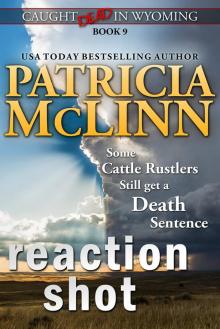 Reaction Shot (Caught Dead in Wyoming, Book 9)
Reaction Shot (Caught Dead in Wyoming, Book 9)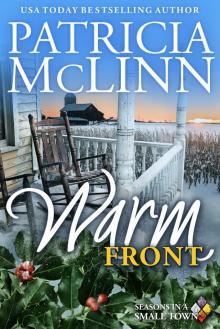 Warm Front
Warm Front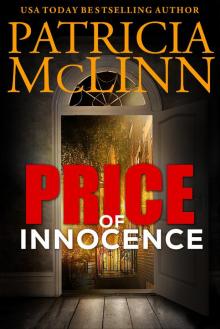 Price of Innocence
Price of Innocence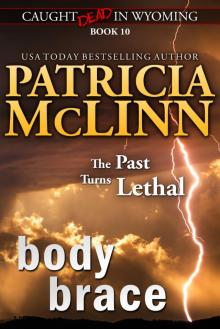 Body Brace (Caught Dead in Wyoming, Book 10)
Body Brace (Caught Dead in Wyoming, Book 10) Death on Covert Circle
Death on Covert Circle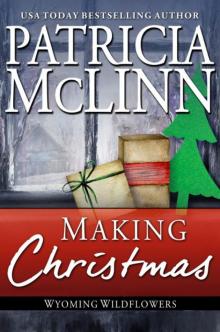 Making Christmas
Making Christmas Death on Torrid Ave.
Death on Torrid Ave. Death on the Diversion
Death on the Diversion The Rancher Meets His Match
The Rancher Meets His Match Widow Woman
Widow Woman The Runaway Bride
The Runaway Bride Hoops
Hoops A Stranger in the Family (Book 1, Bardville, Wyoming Trilogy)
A Stranger in the Family (Book 1, Bardville, Wyoming Trilogy)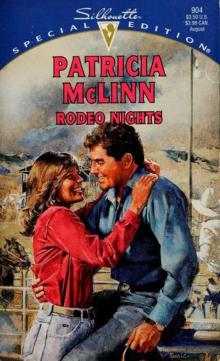 Rodeo Nights
Rodeo Nights Wedding Series Boxed Set (3 Books in 1) (The Wedding Series)
Wedding Series Boxed Set (3 Books in 1) (The Wedding Series)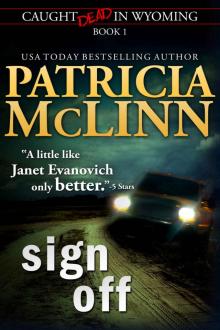 Sign Off (Caught Dead in Wyoming, Book 1)
Sign Off (Caught Dead in Wyoming, Book 1) Prelude to a Wedding
Prelude to a Wedding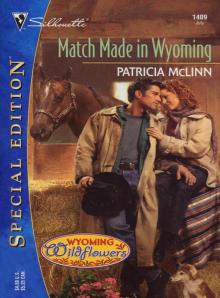 MATCH MADE IN WYOMING
MATCH MADE IN WYOMING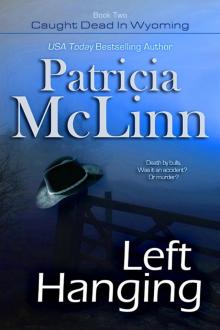 Left Hanging
Left Hanging What Are Friends For?
What Are Friends For?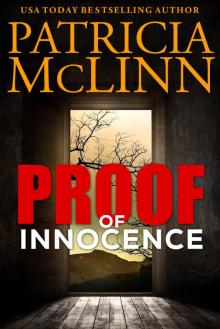 Proof of Innocence
Proof of Innocence Hidden in a Heartbeat (A Place Called Home, Book 3)
Hidden in a Heartbeat (A Place Called Home, Book 3) Baby Blues and Wedding Bells
Baby Blues and Wedding Bells Least Likely Wedding?
Least Likely Wedding? Heart Stealers
Heart Stealers Grady's Wedding
Grady's Wedding Right Brother
Right Brother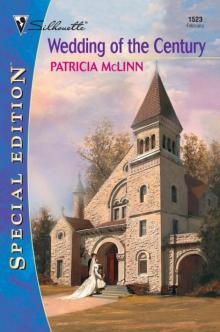 Wedding of the Century
Wedding of the Century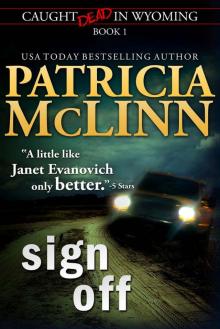 Sign Off
Sign Off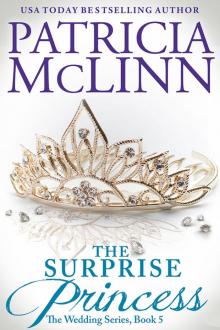 The Surprise Princess
The Surprise Princess Wyoming Wildflowers: The Beginning
Wyoming Wildflowers: The Beginning